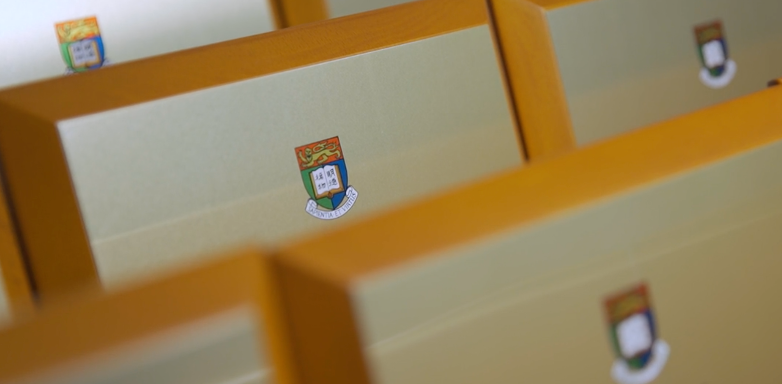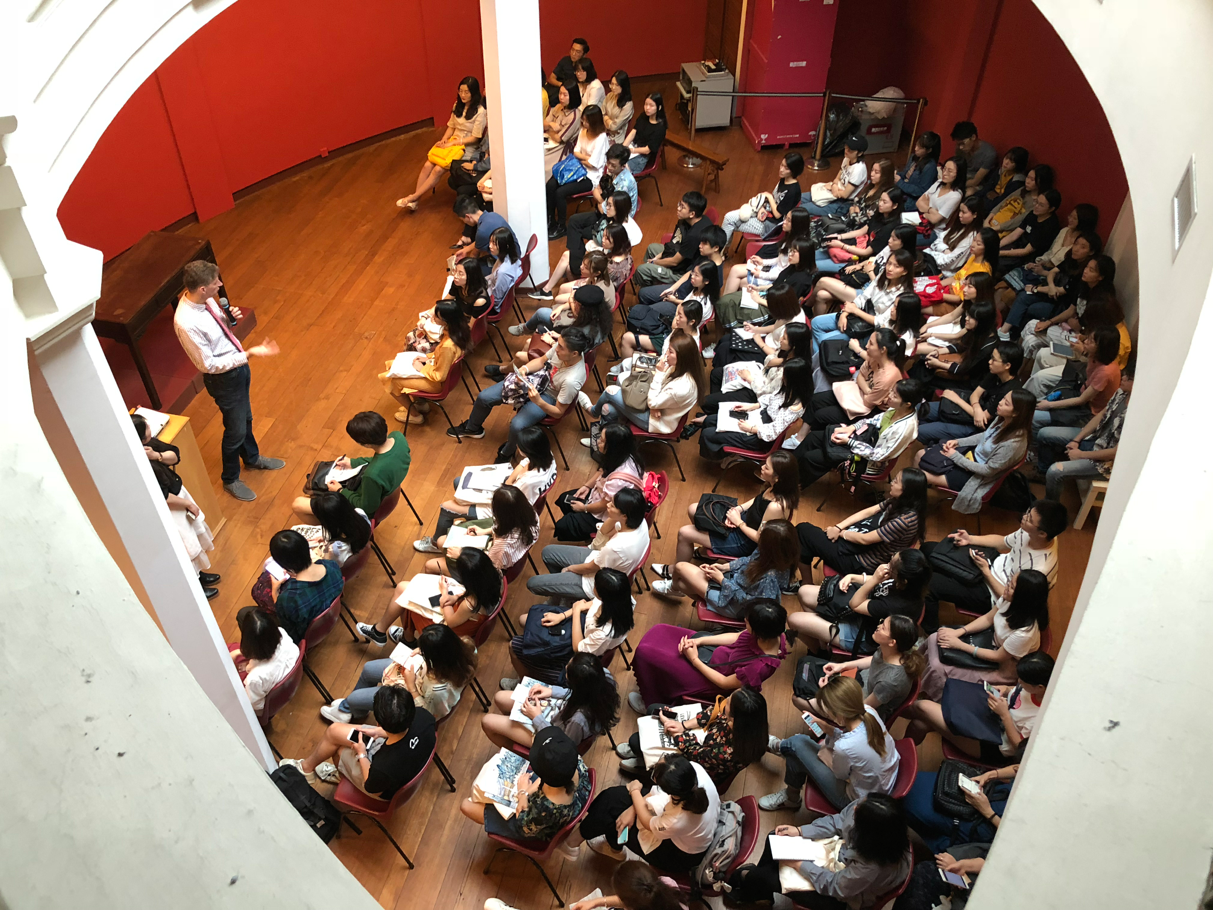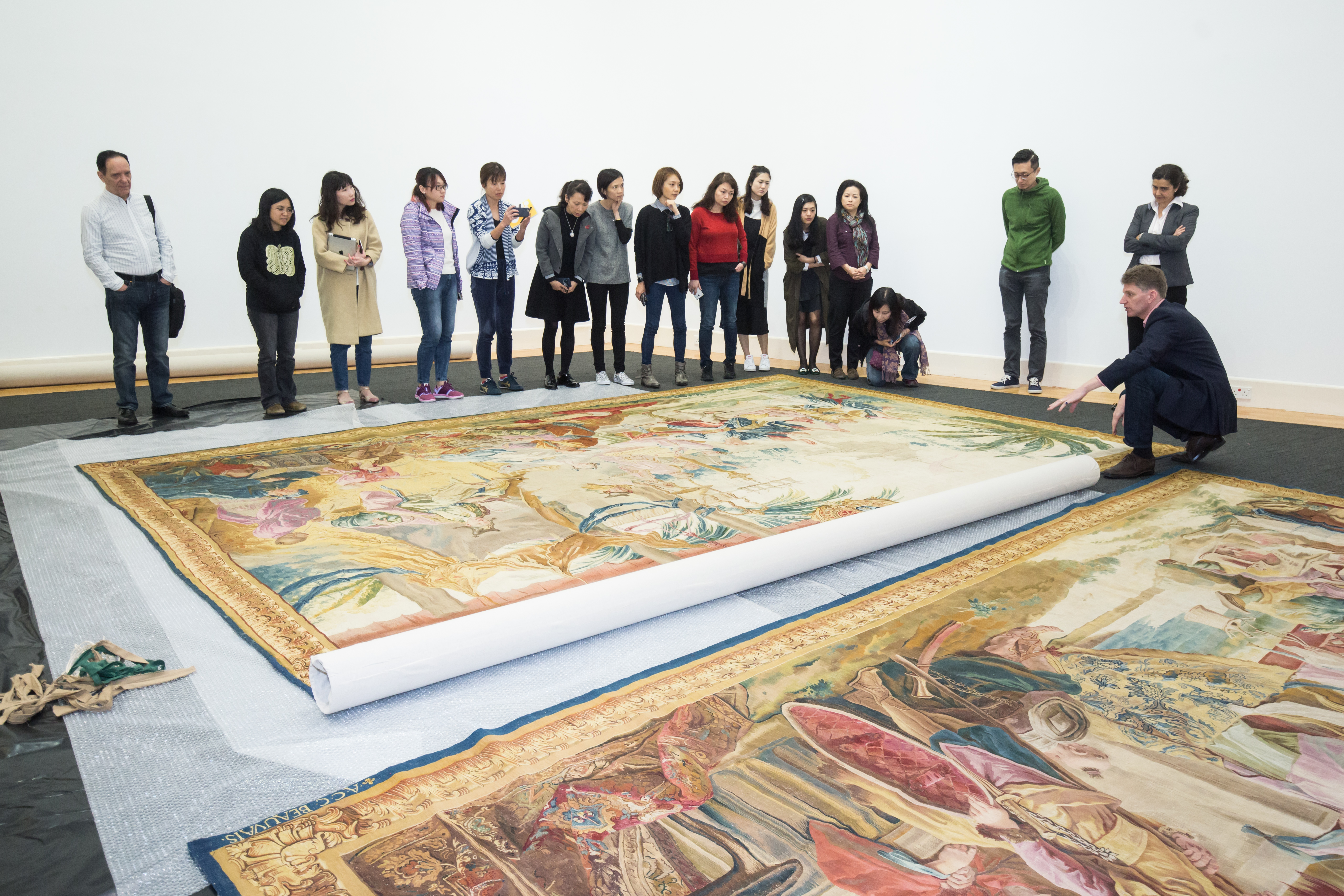

{{'Newsletter' | t}}
HKU’s University Museum: An Art and Culture Resource for 70 Years
Dr Florian Knothe, Director, University Museum and Art Gallery
The University Museum and Art Gallery (UMAG) aspires to generate artistic and cultural experiences that are accessible to people from all walks of life. As such, it is a unique resource for undergraduate and postgraduate students with personal and academic interests in visual arts and museum studies. UMAG’s mission is to educate HKU students and the general public, through art-historical research and teaching, by displaying and interpreting its permanent collection, and by presenting noteworthy temporary exhibitions. UMAG is dedicated to educating our diverse local, regional and international audiences about the past and present of Chinese and other cultures, and to inspiring lifelong learning through both formal and informal education.
UMAG strives to use its permanent collection—Chinese artefacts and archival resources—and Chinese and international temporary exhibitions to accomplish scholarly projects in accord with various departments and curricula from across HKU. It also encourages greater appreciation of the arts and nurtures a stronger sense of cultural values at the University and within the larger Hong Kong community. A key element of the museum’s teaching and learning programmes has been the undergraduate internship programme, which offers young scholars the opportunity to gain practical work experience and earn academic credits.
The museum interns study, research and help communicate many of UMAG’s best-received exhibitions—such as the display of Botticelli’s Venus painting, Boucher’s Emperor of China tapestries and Picasso’s paintings in glass—besides many significant Chinese art projects curated with the museum’s collections and important loans from collaborating museums, artists and collectors. While studying the arts and museum-related methodologies, students also focus on social, economic, cultural and intellectual aspects. They interpret subjects that can be local, national and global to understand the beliefs and values of both past and contemporary societies and the way public cultural institutions have collected, preserved and communicated them.
The museum staff have long been teaching museum studies to undergraduate students and recently developed a new postgraduate degree programme. Museum studies is a discipline connecting traditional academic subjects taught in the humanities, such as art history and history, with more practical professional tasks such as public education and management. It teaches skills in researching, recording and analysing information, which are vital to decision making. It offers knowledge directly relevant to understanding art and heritage. Learning museum studies at HKU provides postgraduate students a training in understanding cultures and important insights into how to interpret and teach them.
Graduate prospects for museum studies students in Hong Kong and its region are excellent as their HKU-based studies benefit from training with UMAG and its connections in the culture scene locally and abroad. Most world-leading universities have museums and offer undergraduate classes and postgraduate programmes by faculty staff and professionals in the cultural sector, and HKU is a key player in the field of research in Asia.

Teaching museum studies: in-gallery lecturing on exhibition curating and visitor engagement.

Teaching technical art history: object-based studying of a set of eighteenth-century French tapestries.
